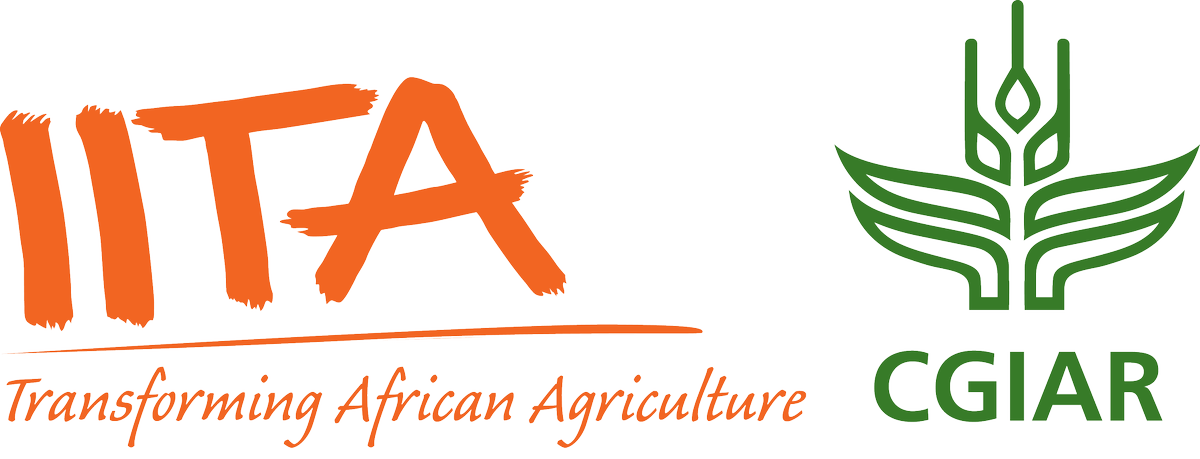Mapping Parcel, Plot Boundaries and Crop Type - Ghana
Citation
Data and Resources
-
Crop Parcel Plot Boundries ... [Dataset is under embargo] csv
This dataset is under embargo and will be available after the embargo end...
Additional Info
| Field | Value |
|---|---|
| Creator | Muthoni, Francis |
| Creator Affiliation | International Institute of Tropical Agriculture (IITA) |
| Creator email | F.Muthoni@cgiar.org |
| Creator ID Type | ORCID |
| Creator ID | 0000-0001-6785-0550 |
| Subject Vocab (AGROVOC/GACS/CAB) | Field size,Land degradation,Cropping systems,Mixed farming,Global positioning systems |
| Subject(s) | |
| Publisher | International Institute of Tropical Agriculture (IITA) |
| Contributor Person 1 | Bekele Kotu |
| Contributor Person 1 Affiliation | International Institute of Tropical Agriculture (IITA) |
| Contributor Person 1 email | B.Kotu@cgiar.org |
| Contributor Person 2 | Powell Mponela |
| Contributor Person 2 Affiliation | |
| Contributor Person 2 email | |
| Contributor Person 3 | Benedict Ebito Boyubie |
| Contributor Person 3 Affiliation | |
| Contributor Person 3 email | |
| Contributor Person 4 | |
| Contributor Person 4 Affiliation | |
| Contributor Person 4 email | |
| Contributor Person 5 | |
| Contributor Person 5 Affiliation | |
| Contributor Person 5 email | |
| Contributor Person 6 | |
| Contributor Person 6 Affiliation | |
| Contributor Person 6 email | |
| Contributor Person 7 | |
| Contributor Person 7 Affiliation | |
| Contributor Person 7 email | |
| Contributor Person 8 | |
| Contributor Person 8 Affiliation | |
| Contributor Person 8 email | |
| Contributor Person 9 | |
| Contributor Person 9 Affiliation | |
| Contributor Person 9 email | |
| Contributor Person 10 | |
| Contributor Person 10 Affiliation | |
| Contributor Person 10 email | |
| Contributor Person 11 | |
| Contributor Person 11 Affiliation | |
| Contributor Person 11 email | |
| Contributor Person 12 | |
| Contributor Person 12 Affiliation | |
| Contributor Person 12 email | |
| Contributor Person 13 | |
| Contributor Person 13 Affiliation | |
| Contributor Person 13 email | |
| Contributor Person 14 | |
| Contributor Person 14 Affiliation | |
| Contributor Person 14 email | |
| Contributor Person 15 | |
| Contributor Person 15 Affiliation | |
| Contributor Person 15 email | |
| Contributor Person 16 | |
| Contributor Person 16 Affiliation | |
| Contributor Person 16 email | |
| Contributor Person 17 | |
| Contributor Person 17 Affiliation | |
| Contributor Person 17 email | |
| Contributor Person 18 | |
| Contributor Person 18 Affiliation | |
| Contributor Person 18 email | |
| Contributor Person 19 | |
| Contributor Person 19 Affiliation | |
| Contributor Person 19 email | |
| Contributor Project Lead Organisation Center | International Institute of Tropical Agriculture (IITA) |
| Contributor Project Lead Center | International Institute of Tropical Agriculture (IITA) |
| Contributor Initiative/CRP | Mixed Farming Systems |
| Contributor Partner | |
| Contributor Donor | CGIAR Trust Fund |
| Contributor Project | Sustainable Intensification of Mixed Farming Systems (SI-MFS) |
| Project ID | PJ-RA3629 |
| Contributor Affiliation | |
| Open-Access status | Open Access |
| Production Date | 2023-06-09 |
| Embargo End Date | 2024-11-30 |
| Content Type | Dataset |
| File Format | csv |
| Identifier Type | DOI |
| Identifier | https://doi.org/10.25502/c4z7-dh18/d |
| Identifier Citation | |
| Source | Sustainable Intensification of Mixed Farming Systems (SI-MFS) |
| Language | English |
| Relation | Not Applicable |
| Agroecological Zone | Subhumid warm tropics |
| Coverage Region | Western Africa |
| Coverage country | Ghana |
| Coverage Admin Unit | Not Applicable |
| Coverage Y (Latitude) | 8.03003 |
| Coverage X (Longitude) | -1.08003 |
| Coverage Start Date | 2023-08-25 |
| Coverage End Date | 2023-09-08 |
| Contact | Muthoni, Francis; GIS Specialist; International Institute of Tropical Agriculture (IITA) |
| Contact Email | F.Muthoni@cgiar.org |
| Restriction | CC-BY 4.0 |
| Email Permission | None |
| Rights | CC-BY 4.0 |
